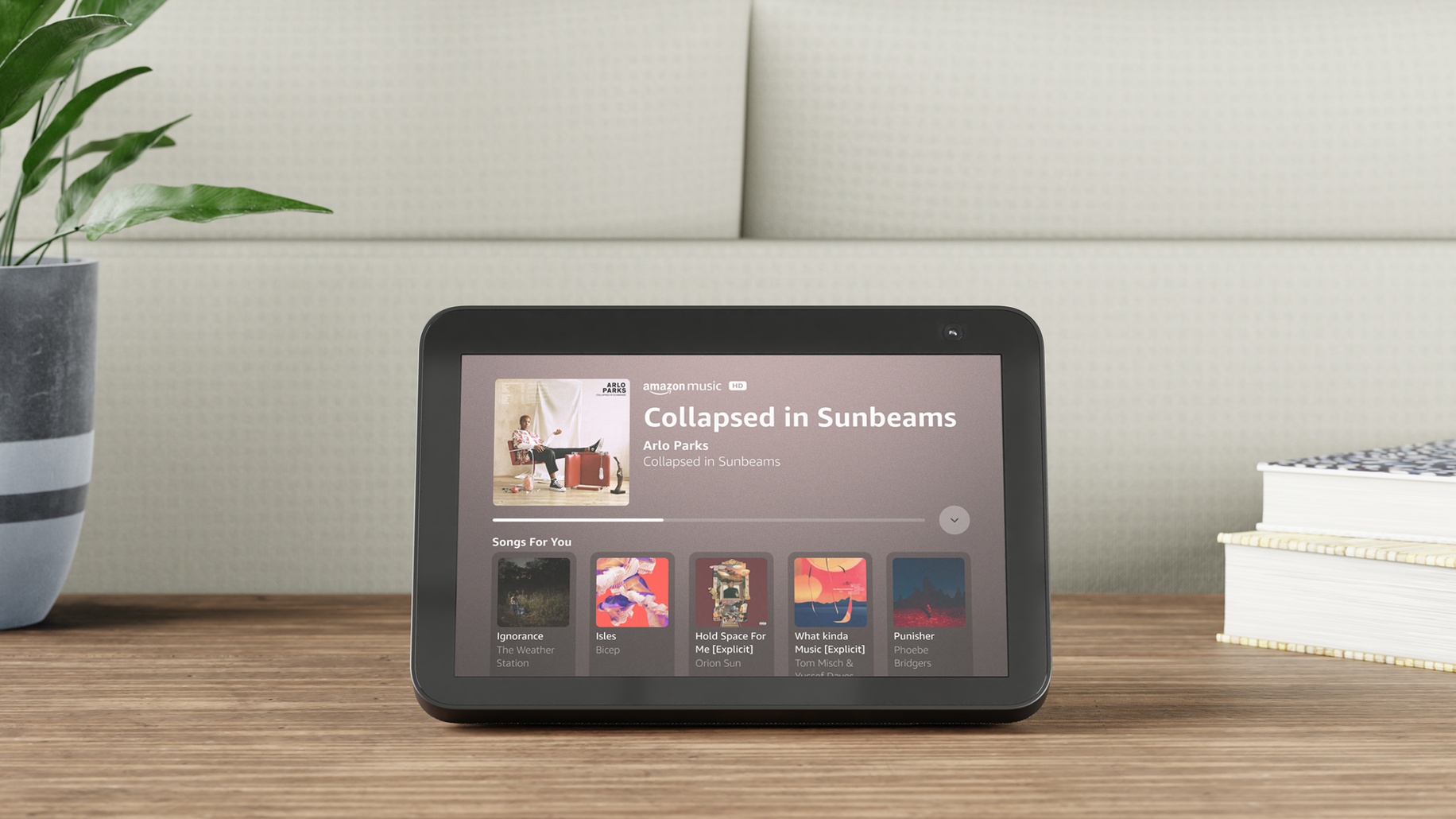Future Amazon Echo could mimic Nest Hub’s sleep tracking
FCC filing might indicate plan for Amazon Echos to track owners’ sleep.

Here at Tom’s Guide our expert editors are committed to bringing you the best news, reviews and guides to help you stay informed and ahead of the curve!
You are now subscribed
Your newsletter sign-up was successful
Want to add more newsletters?

Daily (Mon-Sun)
Tom's Guide Daily
Sign up to get the latest updates on all of your favorite content! From cutting-edge tech news and the hottest streaming buzz to unbeatable deals on the best products and in-depth reviews, we’ve got you covered.

Weekly on Thursday
Tom's AI Guide
Be AI savvy with your weekly newsletter summing up all the biggest AI news you need to know. Plus, analysis from our AI editor and tips on how to use the latest AI tools!

Weekly on Friday
Tom's iGuide
Unlock the vast world of Apple news straight to your inbox. With coverage on everything from exciting product launches to essential software updates, this is your go-to source for the latest updates on all the best Apple content.

Weekly on Monday
Tom's Streaming Guide
Our weekly newsletter is expertly crafted to immerse you in the world of streaming. Stay updated on the latest releases and our top recommendations across your favorite streaming platforms.
Join the club
Get full access to premium articles, exclusive features and a growing list of member rewards.
Amazon may be planning to take a leaf out of Google’s book with a future Echo or Echo Show device, in the form of new sleep-tracking capabilities.
As spotted by Bloomberg, the retail giant has successfully applied to the Federal Communications Commission for permission to use radar to “enable contactless sleep tracing functionalities.” The ability to use radar would also allow users to control a device with simple hand gestures and movements, aiding those “with mobility, speech, or tactical impairments” according to the listing.
- Alexa vs. Google Assistant: Which smart assistant wins?
- Best fitness trackers in 2021: Top activity bands from Fitbit, Garmin and more
- Just in: Samsung Galaxy S22 could get vapor chamber cooling for improved performance
It’s sleep tracking that’s the main basis on Amazon’s pitch, however. “The use of Radar Sensors in sleep tracking could improve awareness and management of sleep hygiene, which in turn could produce significant health benefits for many Americans,” the company wrote in its filing. “Radar Sensors will allow consumers to recognize potential sleep issues.”
If this all sounds a little familiar, it’s because it’s the same technology that Google has been gradually introducing over the last few years, most successfully in the second-generation Nest Hub, where it also tracks sleep patterns.
Originally known as Project Soli, the radar chip was introduced to the Google Pixel 4, before going missing in last year’s Pixel 5. The company was very clear the technology wasn’t dead though, with Google’s hardware lead Rick Osteloh saying that it would “be used in the future,” but that it wasn't appropriate for the Pixel 5 on pricing grounds.
Sure enough, it emerged this year in Google’s smart screen. In our second-generation Google Nest Hub review, our senior writer Kate Kozuch was quite impressed with the implementation, once she got past the creepy factor of having a screen watching over her sleep.
“The Nest Hub does not provide specific sleep cycle data like some fitness trackers do, but the actionable sleep tracking data is among the most comprehensive I’ve seen for a consumer-facing device,” she wrote.
Get instant access to breaking news, the hottest reviews, great deals and helpful tips.
That said, she did note that the sensor could prove a little fickle, and was defeated by her accidentally placing a glass of water in front of it overnight. Still, the sleep duration readings proved to be within 10 minutes of her Apple Watch, with a clear advantage for Google in that the Nest Hub tracks contactlessly without the need for charging.
Amazon already has a method of sleep tracking for owners of the Halo band, but it’s safe to say that, in terms of sales, the Echo has proved a more successful product overall. And given the company already has a couple of smaller Echo devices designed for the bedroom, for instance the Echo Dot with Clock, it wouldn’t be surprising if Alexa had a brand new skill set very soon.
- More: The best smart speakers you can buy
Freelance contributor Alan has been writing about tech for over a decade, covering phones, drones and everything in between. Previously Deputy Editor of tech site Alphr, his words are found all over the web and in the occasional magazine too. When not weighing up the pros and cons of the latest smartwatch, you'll probably find him tackling his ever-growing games backlog. He also handles all the Wordle coverage on Tom's Guide and has been playing the addictive NYT game for the last several years in an effort to keep his streak forever intact.
 Club Benefits
Club Benefits











